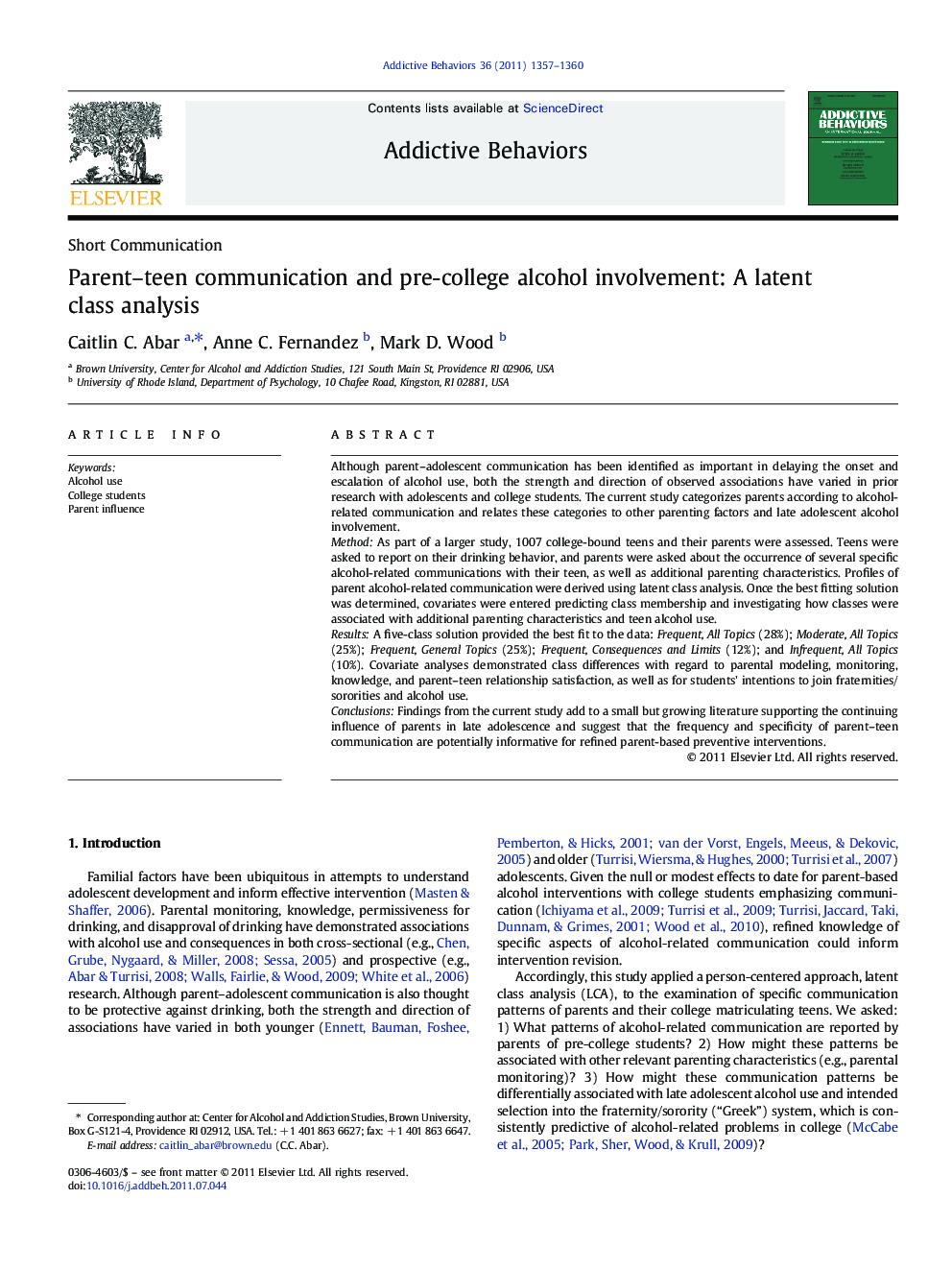| Article ID | Journal | Published Year | Pages | File Type |
|---|---|---|---|---|
| 899573 | Addictive Behaviors | 2011 | 4 Pages |
Although parent–adolescent communication has been identified as important in delaying the onset and escalation of alcohol use, both the strength and direction of observed associations have varied in prior research with adolescents and college students. The current study categorizes parents according to alcohol-related communication and relates these categories to other parenting factors and late adolescent alcohol involvement.MethodAs part of a larger study, 1007 college-bound teens and their parents were assessed. Teens were asked to report on their drinking behavior, and parents were asked about the occurrence of several specific alcohol-related communications with their teen, as well as additional parenting characteristics. Profiles of parent alcohol-related communication were derived using latent class analysis. Once the best fitting solution was determined, covariates were entered predicting class membership and investigating how classes were associated with additional parenting characteristics and teen alcohol use.ResultsA five-class solution provided the best fit to the data: Frequent, All Topics (28%); Moderate, All Topics (25%); Frequent, General Topics (25%); Frequent, Consequences and Limits (12%); and Infrequent, All Topics (10%). Covariate analyses demonstrated class differences with regard to parental modeling, monitoring, knowledge, and parent–teen relationship satisfaction, as well as for students' intentions to join fraternities/sororities and alcohol use.ConclusionsFindings from the current study add to a small but growing literature supporting the continuing influence of parents in late adolescence and suggest that the frequency and specificity of parent–teen communication are potentially informative for refined parent-based preventive interventions.
► Performed latent class analysis on 1,007 college-bound teens and their parents. ► Identified five distinct patterns of alcohol-related parent-teen communication. ► 90% of parents discussed all topics with at least moderate frequency. ► Parents who frequently discussed all topics tended to model alcohol use the least. ► Profiles also differed on monitoring, relationship satisfaction, and teen drinking.
